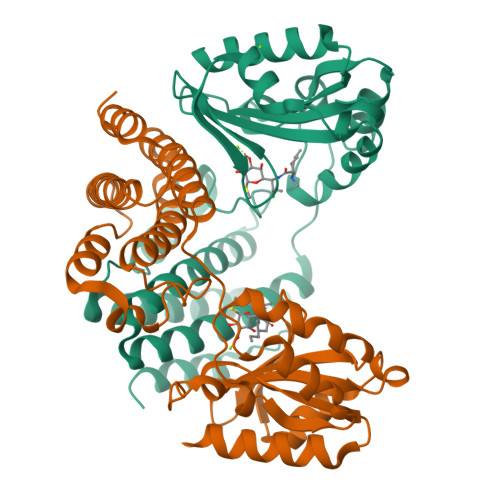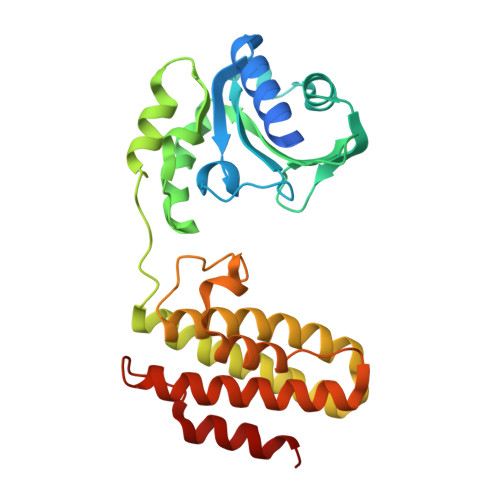Structure and mechanism of the lincosamide antibiotic adenylyltransferase LinB.
Morar, M., Bhullar, K., Hughes, D.W., Junop, M., Wright, G.D.(2009) Structure 17: 1649-1659
- PubMed: 20004168
- DOI: https://doi.org/10.1016/j.str.2009.10.013
- Primary Citation of Related Structures:
3JYY, 3JZ0 - PubMed Abstract:
Lincosamides make up an important class of antibiotics used against a wide range of pathogens, including methicillin-resistant Staphylococcus aureus. Predictably, lincosamide-resistant microorganisms have emerged with antibiotic modification as one of their major resistance strategies. Inactivating enzymes LinB/A catalyze adenylylation of the drug; however, little is known about their mechanistic and structural properties. We determined two X-ray structures of LinB: ternary substrate- and binary product-bound complexes. Structural and kinetic characterization of LinB, mutagenesis, solvent isotope effect, and product inhibition studies are consistent with a mechanism involving direct in-line nucleotidyl transfer. The characterization of LinB enabled its classification as a member of a nucleotidyltransferase superfamily, along with nucleotide polymerases and aminoglycoside nucleotidyltransferases, and this relationship offers further support for the LinB mechanism. The LinB structure provides an evolutionary link to ancient nucleotide polymerases and suggests that, like protein kinases and acetyltransferases, these are proto-resistance elements from which drug resistance can evolve.
Organizational Affiliation:
M.G. DeGroote Institute for Infectious Disease Research, Department of Biochemistry and Biomedical Sciences and the Department of Chemistry, McMaster University, Hamilton, ON L8N 3Z5, Canada.





















